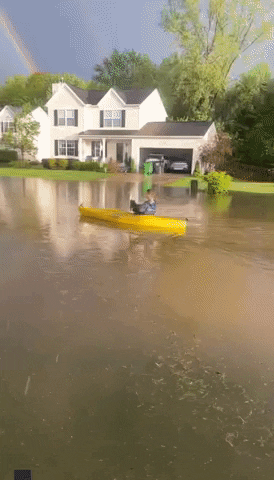HMW #115: What to look for in an inspection?
Aug 16, 2023
Read Time: 6 minutes
Our favorite sponsors who help keep this content free for you:
Today's issue is sponsored by Jasmine Mortgage Team my preferred residential lender. My team and I have done over 83 deals directly with Jasmine and her team. Work with someone that understands real estate. Book a free 15-minute consultation with Jasmine today.
And Steadily Landlord Insurance, the premier insurance company for landlords of all types. Landlord insurance created by landlords offering dwelling, umbrella, builder's risk, renters, flood insurance and more. Whether you have short-term or long-term rentals, student housing, vacant properties, or other investment needs, Steadily offers fast, affordable insurance quotes.
Inspection nightmares? Or possible profit centers? I (Alan) love inspections. They give you a deeper look at what you are buying and gives you an opportunity to get a better deal.
Nothing like the love of paying an inspector $700 to create a 68-page inspection report designed to freak you out. But you need to understand how you can use this necessary step in buying a property to your advantage. Let me give you three ways.

Gulp! We are off to a bad start.
Always get an inspection. At a minimum you should be able to find a reason to get at least a $700 credit to cover the cost of the inspection tome report to begin with. But let's get one thing out of the way up front:
Every single home has issues.
I'm talking new construction homes, condos, townhomes, flipped homes, and original owner homes. There is absolutely no perfect home at any perfect time. Materials bend, rot, warp, and age. Land and foundations rise, drop, erode, and accumulate dirt and debris. A home is a living thing made of many natural materials placed outdoors amongst nature. So, let's don't freak out about some issues found in an inspection report. It's expected.

If that's the case, then real estate is definitely not for you. If you want straight lines and perfect materials, maybe try Legos or investing in the Metaverse? But hear me out on what you can do post-inspection IRL to turn any turd of a property into a potential treasure.
Focus Point 1: Big headaches mean big money
Everything is fixable. Every foundation, every roof, every mold invasion. Everything. Sure, it costs money to fix things. But if you play your cards right, it will not be your money.
A $10,000 deal breaker of an issue can become a $12,000 credit or a $15,000 reduction in price. Take the quote + your headache fee to deal with the problem and negation all major issues into your advantage.
Sellers don't want headaches. They want to move. They will pay you extra to fix the headaches so they can get on with their lives. Use this to your advantage.

Close! A more accurate statement is "mo problems, mo money." Each problem, headache or issue is a profit center with proper negotiation.
Focus Point 2: Identify spaces that can one day increase rents
Possibly your property has a funky attic with a low ceiling, larger than normal crawlspace, or an attached garage. Use this time to ask your inspector (or contractor if he/she is with you) what would be needed to make it a livable, up-to-code living space one day.
You want to identify as many as these "future upgrades" as you possibly can on all your properties. More square footage, more bedrooms, or more bathrooms can really juice your ROI in real estate. When the budget allows or the rental markets demands for more space, you will be ready to pull the trigger and renovate these unused spaces into extra rental income.
Sure, it may mean bumping the roof some, digging down a little in the crawl, or running some new plumbing, but all this is cheaper than selling and buying a bigger home or building a brand new addition.

Then you'll make an excellent real estate investor! Look for easy opportunities for easy money.
Focus Point 3: Water, water everywhere.
Water is always going to be an investors pain point. Without water we wouldn't have flooding, mold, erosion, and well, tears. Identify all water issues upfront and budget for the prevention of water issues from day one.
So come inspection time, know this about your property:
- Are there any gutters, downspouts, or roof water runoff issues? If so, can we get them addressed before closing?
- Is the landscaping causing the water to drain towards the home or foundation? If so, what is necessary to make water reroute away from the home?
- Where is the main water shut off value to the house? How quickly can I cut the water if a pipe bursts inside the home to prevent interior water damage?
These are typically stated in any standard inspection report, but I want to call them out as it's very important info that many people gloss over. Water does not respect home owners, so you must respect water.

Ok, you make a good point. Water doesn't want to be in your home anyway. So, let's earn water's respect by keeping it outdoors where it wants to be.

Wow, so much respect, you even got a rainbow! But here's a link to House Money Media's recommended wet-vac just in case if it's not all sunshine and rainbows for you in the future.
Summary
- Mo problems, mo money.
- Odd spaces can be square footage play later.
- Keep yourself hydrated, but not your home.
